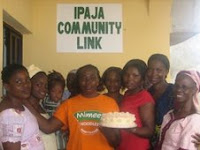I have been asked to circulate this job vaccancy from the International Fellowship of Reconciliation (IFOR) for which our programme's module, ED3022 on Gender Security and Education for All, is excellent preparation.
Job vacancies: Two Trainers for Training of Trainers "Gender-Sensitive Active Non-Violence Training: Exploring Masculinities, Violence and Peace building"

The IFOR Women Peacemakers Program (WPP) is currently looking for two trainers for its Pilot Training of Trainers “Gender-Sensitive Active Non-Violence Training: Exploring Masculinities, Violence and Peace building”
BackgroundThe Women Peacemakers Program (WPP) is a program of the International Fellowship of Reconciliation (IFOR). The program started in 1997 from the vision that empowering women to become involved in peace and civil society building is essential for development: “without peace, development is impossible – and without women, neither peace nor development can take place”.
Gender lies at the root of war and peace. As a marker of identity, an exploration of gender is becoming increasingly critical in understanding the complexity of current conflicts. Two main obstacles identified by women peace activists during WPP trainings, are:-society lacking a gender-analysis of violence, and-male colleagues in the peace sector not identifying with concept of gender (gender often being perceived as mainly applying to women).
It is WPP’s experience that male trainers are in a good position to reach out to male participants. Gender-sensitive male trainers can act as powerful role models for gender equality, in addition to deepening gender analysis. Training male peace activists in gender-sensitive non-violence hence will increase access to and the involvement of this vital part of civil society.
In light of this analysis, the WPP plans to organize a Training of Trainers (ToT) Cycle, consisting of two 10-days long Trainings, in either Asia or Africa during the period 2009/2010. This Training of Trainers will focus on advance instruction in the theory and practice of gender-sensitive active non-violence (ANV); the theory of masculinities and its relation to violence; participatory and gender-sensitive facilitation; and other relevant topics based on a needs-assessment done prior to the ToT.
The first 10-days ToT in 2009 will have a maximum of 20 participants. The target audience will be male representatives from CSOs focusing on peace building and conflict resolution. The 20 participants will be expected to organize one gender-sensitive ANV training within a year of their return home. The WPP will support these trainings with seed money and a mentor, who will support and evaluate the trainees’ performance as trainers. The 2010 ToT will evaluate the trainees’ progress, address obstacles and identify needs for further support and mentoring. At the end of the pilot skills development program, the program will be evaluated for effect.
For this innovative Training of Trainers pilot, the WPP program is seeking two highly qualified trainers. The following are the specific goal and objectives, which the trainers will be expected to accomplish.
Goal: To train male trainers in gender-sensitive non-violent peace building.Objectives:
1. To contribute to a training needs assessment for the ToT;
2. To contribute to the development of training curriculum for the ToT;
3. To train male trainers on gender-sensitive active non-violence (ANV);
4. To explore the concept of masculinities in relation to issues of war, violence and peace;
5. To explore transformative leadership;
6. To establish community-based teams who can multiply gained skills and knowledge;
7. To create a pool of male gender-sensitive ANV trainers;
8. To contribute to a training manual from the ToT experience.
Expected Training Methodology: Participatory, Learning in Action, Experiential.
IFOR/WPP is looking for two trainers for its Training of Trainers cycle, who will work together during the ToT cycle (including co-facilitation).
The ToT cycle will take place over a period of approximately 1.5 years.Trainers will be expected to participate in/ contribute to the curriculum design; two 10-days trainings; possible mentoring of trainees; as well ToT manual design.
Competencies, skills and experienceEach trainer should be/have:
• Experience with participatory / learning in action methodologies
• Training experience on the following topics:- Active Non-violence and Peace building- Gender and Masculinities
• Experience with training in international/ intercultural/ interfaithsettings
• Experience in writing a training curriculum
• Activist/CSO experience/background
• Active in network settings (e.g. on gender/masculinities)
• Excellent English language skills
• Academic background (BA/ MA) in a relevant field (desirable)
If you meet these requirements, please submit the following by 20 April 2009:
• An application letter with detailed Curriculum Vitae, including at leasttwo referees (please specify the relationship);
• Not more than a 4-page concept paper explaining how you plan to conductthis training (specifying training topics and training methodologies);
• An indication of your fee.
To: Jose de Vries, IFOR/WPP Information Officer: j.devries@ifor.org or via address:IFOR/WPP, Jose de Vries, Spoorstraat 38, 1815 BK Alkmaar, the Netherlands(++31-(0) 72 512 3014).
For an elaborate description; please visit:
www.ifor.org/WPPWithout peace, development is impossible, and without women, neither peace nor development can take place.
The Women Peacemakers Program (WPP) empowers women world-wide through gender-sensitive nonviolence training and education.
WPP is a program of the International Fellowship of Reconciliation (IFOR).
Founded in 1919, IFOR is an inter-faith movement committed to active nonviolence, with branches and affiliates in 43 countries.
IFOR has consultative status at the United Nations (ECOSOC) and has included six Nobel Peace Prize Laureates among its members.




 Dr Lionel McCalman, module leader for some of Education and Community Development's core modules, always dresses up for the occasion!
Dr Lionel McCalman, module leader for some of Education and Community Development's core modules, always dresses up for the occasion! 





